Papers by Francesca Feruglio
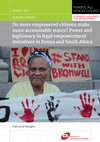
Many marginalised groups face difficulties in accessing essential services, such as housing, heal... more Many marginalised groups face difficulties in accessing essential services, such as housing, health care and water – even though their rights to these services are enshrined in international and often in national laws.
This research report looks at four cases studies of organisations using a legal empowerment approach - two each from Kenya and South Africa - to examine the different strategies that they use to improve citizens’ access to services.
Hakijamii works to help people realise their socioeconomic rights in Kenya; the Bar Hostess Empowerment and Support Programme in Nairobi helps sex workers (and others) obtain access to healthcare and challenge criminal charges; Ndifuna Ukwazi, tackles spatial inequality and segregation around land and housing in Cape Town; and the Witzenberg Rural Development Center provides advice on human rights issues.
Drawing on these cases, the research considers how the organisations use legal discourse, frameworks and mechanisms to empower citizens, and how the state responds when groups and organisations engage with it. It reflects on the relationship between empowerment and accountability, concluding that the identity and legitimacy of intermediary organisations are key factors in shaping positive outcomes for accountable governance.
Access to health care is a fundamental right every
human being is entitled to. Stressing the
fact... more Access to health care is a fundamental right every
human being is entitled to. Stressing the
fact that health care is viewed as a human right before
considering it as a commodity — and so must be
treated this way by States — is an effective strategy to
expand access to life saving treatment and ensure safe
motherhood for all. The following article describes
Nazdeek’s strategy, fusing training and community mobilisation with public interest litigation and
advocacy.
Framing health as a human right has specific
repercussions on people’s everyday lives. It means,
... more Framing health as a human right has specific
repercussions on people’s everyday lives. It means,
first of all, that everyone must be ensured access to
essential care regardless of their gender, ethnicity,
economic status, sexual identity, age and so on. The following article describes
Nazdeek’s strategy, fusing training and community mobilisation with public interest litigation and
advocacy.
Books by Francesca Feruglio
No Time to Lose reports on India’s first attempt to collect and map cases of maternal and infant ... more No Time to Lose reports on India’s first attempt to collect and map cases of maternal and infant health violations reported by women living in tea gardens through SMS technology. The report is the culmination of the End MM Now Project, which fuses legal empowerment, community monitoring and technology

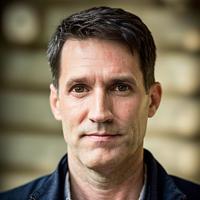
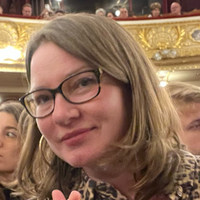


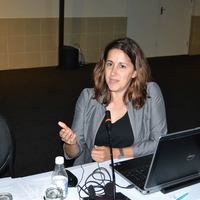

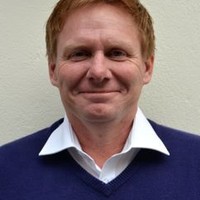


Uploads
Papers by Francesca Feruglio
This research report looks at four cases studies of organisations using a legal empowerment approach - two each from Kenya and South Africa - to examine the different strategies that they use to improve citizens’ access to services.
Hakijamii works to help people realise their socioeconomic rights in Kenya; the Bar Hostess Empowerment and Support Programme in Nairobi helps sex workers (and others) obtain access to healthcare and challenge criminal charges; Ndifuna Ukwazi, tackles spatial inequality and segregation around land and housing in Cape Town; and the Witzenberg Rural Development Center provides advice on human rights issues.
Drawing on these cases, the research considers how the organisations use legal discourse, frameworks and mechanisms to empower citizens, and how the state responds when groups and organisations engage with it. It reflects on the relationship between empowerment and accountability, concluding that the identity and legitimacy of intermediary organisations are key factors in shaping positive outcomes for accountable governance.
human being is entitled to. Stressing the
fact that health care is viewed as a human right before
considering it as a commodity — and so must be
treated this way by States — is an effective strategy to
expand access to life saving treatment and ensure safe
motherhood for all. The following article describes
Nazdeek’s strategy, fusing training and community mobilisation with public interest litigation and
advocacy.
repercussions on people’s everyday lives. It means,
first of all, that everyone must be ensured access to
essential care regardless of their gender, ethnicity,
economic status, sexual identity, age and so on. The following article describes
Nazdeek’s strategy, fusing training and community mobilisation with public interest litigation and
advocacy.
Books by Francesca Feruglio
This research report looks at four cases studies of organisations using a legal empowerment approach - two each from Kenya and South Africa - to examine the different strategies that they use to improve citizens’ access to services.
Hakijamii works to help people realise their socioeconomic rights in Kenya; the Bar Hostess Empowerment and Support Programme in Nairobi helps sex workers (and others) obtain access to healthcare and challenge criminal charges; Ndifuna Ukwazi, tackles spatial inequality and segregation around land and housing in Cape Town; and the Witzenberg Rural Development Center provides advice on human rights issues.
Drawing on these cases, the research considers how the organisations use legal discourse, frameworks and mechanisms to empower citizens, and how the state responds when groups and organisations engage with it. It reflects on the relationship between empowerment and accountability, concluding that the identity and legitimacy of intermediary organisations are key factors in shaping positive outcomes for accountable governance.
human being is entitled to. Stressing the
fact that health care is viewed as a human right before
considering it as a commodity — and so must be
treated this way by States — is an effective strategy to
expand access to life saving treatment and ensure safe
motherhood for all. The following article describes
Nazdeek’s strategy, fusing training and community mobilisation with public interest litigation and
advocacy.
repercussions on people’s everyday lives. It means,
first of all, that everyone must be ensured access to
essential care regardless of their gender, ethnicity,
economic status, sexual identity, age and so on. The following article describes
Nazdeek’s strategy, fusing training and community mobilisation with public interest litigation and
advocacy.